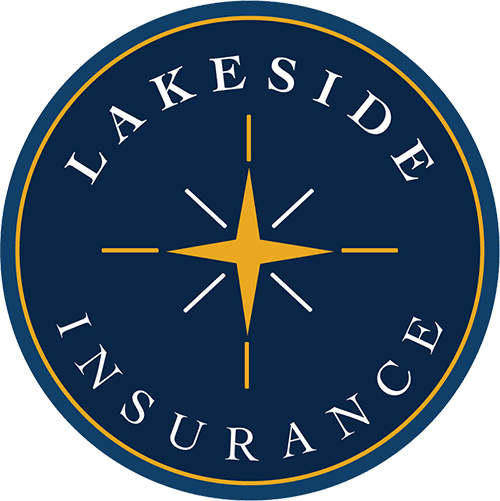
I. Wage and Hour
a. Minimum Wage for Hourly Workers Effective January 1, 2024:
a. Colorado minimum wage is increasing to $14.42 per hour.
– Tipped employees minimum wage is increasing to $11.40 per hour.
b. Denver minimum wage is increasing to $18.29 per hour.
c. Boulder County’s minimum wage is $15.69 per hour.
b. Salaried employees minimum wage is increasing to $55,000 per year on January 1, 2024.
c. Employee Separations:
i. Terminations for Cause, final pay – Colorado law requires that employees be paid their owned wages at the time of separation EXCEPT:
– When the Accounting Unit who handles paychecks is not open, wages are due no later than 6 hours at the start of the Accounting Unit’s workday; or,
– If the Accounting Unit is off site, the check is delivered no later than 24 hours after the start of that unit’s regular workday.
ii. If an employee resigns, final pay can be paid out with next regular payroll.
d. Bonuses and commissions – under the Colorado Wage Act, bonuses and commissions are considered compensation. When an interruption in the employer-employee relationship occurs, the wages or compensation for labor or service earned, vested, determinable, and unpaid at the time of such discharge is due and payable immediately. Do you have a commission document that explains payment terms to employees? Talk to us if you need one.
e. Wage Order 39 is new! Here are the changes:
i. Clarifications to the calculation of regular rates for employees with multiple jobs with the same employer as well as to the “time worked” rule.
ii. Tipped Employees:
– Updated definition of a Tipped Employee
– Clarification of which employees can be included in the Tip Pool
– Details are available here:
iii. Have you distributed Wage Order 39’s poster to employees? Available in Spanish and English. Click here to get the poster: https://cdle.colorado.gov/sites/cdle/files/2024%20COMPS%20Order%20%2339%20Poster%20English%20%5Baccessible%5D.pdf
f. Link for more information: Wage and Hour Laws | Department of Labor & Employment (colorado.gov)
II. Family Medical Leave Insurance (FAMLI)
a. Beginning January 1, 2024 – Provides for 12 weeks of job protected leave per year for family/medical reasons. Provides for 16 weeks leave for women with pregnancy complications.
b. Employees will be eligible to take the leave after earning $2,500 for CO employer(s) over one year.
c. Withholdings began on 1/1/2023 for:
i. All employees – 0.45% tax
ii. For employers over 10 employees – 0.45% tax
iii. Taxes subject to change in 2025 based on 2024 utilization.
d. Have you distributed the poster to employees? Here’s the poster: https://famli.colorado.gov/sites/famli/files/FAMLI-Required-Program-Notice-English-Revised-December-2023.pdf
e. Have a Private Family Leave plan (PFML) in lieu of FAMLI? Make sure the one-page overview is distributed to employees. NOTE: Benefits and job protections in FAMLI still apply.
f. For more information on FAMLI, visit: FAMLI Toolkit | Family and Medical Leave Insurance (colorado.gov)
III. Colorado Secure Savings
a. Began 01/01/2023 – It is at no cost to employers; however, the employer must manage the administration.
b. State Sponsored Programs are generally Roth IRAs, Annual salary deferral limit, $5,000 catch up contribution for participants 50+, $1,000. Offers a variety of investment options.
c. Employees 18 years or older may participate, and employed in the state of CO at least 180 days (6 months).
d. All companies must register to either use the CO Secure Savings program and if applicable, apply for exemption.2024 Legal Updates for Small Businesses
e. If you have a retirement plan in place such as a 401(k) you can register an exemption. BBSI has a terrific 401(k) plan for clients that removes all the administration work and offers all the services of a 401(k) plan.
f. If employees do not respond to the state once they are notified, the employer is obligated to deduct 5% of gross pay and deposit into the CO Secure Savings program. Each year contribution rates must increase 1% for all participants up to a maximum of 8%.
g. Flyer available to distribute to employees if you opt to use the CO Secure Savings Program: Retirement saving made easy (coloradosecuresavings.com)
h. Website to register: Employers – Colorado SecureSavings
IV. Equal Pay for Equal Work (EPEWA)
a. The law requires Colorado business to provide equal pay to all employees performing substantially similar work. EPEWA prohibits employers from discriminating because of sex by paying less for similar work in terms of skill, effort and responsibility, and performed under similar working conditions.
b. All jobs must now be posted for employees to see, not just promotions.
c. EPEWA requires employers to include compensation in job postings, notify employees of promotional opportunities, and keep job descriptions and wage rate records.
d. Part 2 of the EPEWA requires that employers tell employees who filled position and include career progression of the job in the announcement. Need a template to work from? Contact BBSI for help.
e. Link for more information (Equal Pay for Equal Work Part 2): https://cdle.colorado.gov/equalpaytransparency
V. Corporate Transparency Act
a. Beginning January 1, 2024- New Federal Reporting Requirement for Beneficial Ownership Information (BOI)
b. Many companies in the United States will have to report information about their beneficial owners, i.e., the individuals who ultimately own or control the company. They will have to report the information to the Financial Crimes Enforcement Network (FinCEN). FinCEN is a bureau of the U.S. Department of the Treasury.
c. Companies may need to report information about its beneficial owners if the company is:
1. A corporation, a limited liability company (LLC), or was otherwise created in the United States by filing a document with a secretary of state or any similar office under the law of a state or Indian tribe; or
2. A foreign company and was registered to do business in any U.S. state or Indian tribe by such a filing.
d. Companies should talk to their CPAs for more information. The deadline to register is December 31, 2024.
e. Link for more information: BOI Informational Brochure (fincen.gov)
VI. Healthy Families Workplace Act
a. An employer must provide 1 hour of accrued, paid leave per 30 hours worked, up to 48 hours per year. Accrued paid sick leave can be used for a wide range of health and safety needs. These are not considered earned wages and do not need to be paid out upon separation.
b. As of August 2023 – Two items added that qualify for HFWA use:
i. Bereavement, or financial/legal needs after a death of a family member; or
ii. Due to inclement weather, power/heat/water loss, or other unexpected event, the employee must:
a. evacuate their residence, or
b. care for a family member whose school or place of care was closed.
c. Link for more information: Paid Sick Leave under the Colorado Healthy Families and Workplaces Act (HFWA) | Department of Labor & Employment
VII. OSHA Reporting – Final Rule on Workplace Injury and Illness Reporting Requirements
a. Effective January 1, 2024- Amends recordkeeping and reporting requirements to require certain employers to electronically submit injury and illness information to OSHA.
b. Establishments with 100 or more employees in certain high-hazard industries (agriculture, manufacturing, entertainment, construction, etc.) must submit information from their Form 300-Log of Work-Related Injuries and Illnesses, and Form 301-Injury and Illness Incident Report to OSHA once a year. These submissions are in addition to submission of Form 300A-Summary of Work-Related Injuries and Illnesses.
c. Link to website: 2023-15091.pdf (govinfo.gov)
VIII. Final Rule: Employee or Independent Contractor Classification Under the Fair Labor Standards Act
a. Effective March 11, 2024 – This final rule is an analysis for determining employee or independent contractor status that is more consistent with the FLSA as interpreted by longstanding judicial precedent.2024 Legal Updates for Small Businesses
b. The misclassification of employees as independent contractors may deny workers minimum wage, overtime pay, and other protections. This final rule will reduce the risk that employees are misclassified as independent contractors while providing a consistent approach for businesses that engage with individuals who are in business for themselves.
c. Link to website: Final Rule: Employee or Independent Contractor Classification Under the Fair Labor Standards Act, RIN 1235-AA43 | U.S. Department of Labor (dol.gov)
IX. Job Application Fairness Act (JAFA)
a. Effective July 1, 2024 – Employers cannot ask applicants on an initial application to disclose their date of birth, dates of attendance at an educational institution, dates of graduation from an educational institution, or other similar inquiries that would disclose age. Employers may still request additional application materials, such as school transcripts, but are required to notify applicants that they may redact age-related information prior to submission.
b. Link to website: https://leg.colorado.gov/sites/default/files/2023a_058_signed.pdf
X. Protecting Opportunities and Workers’ Rights Act (POWR Act)
a. Effective August 7, 2023 – Lowers the standard for workplace harassment claims, moving on from a severe or pervasive standard.
b. The law changes the definition of “harassment,” replacing the previous requirement that conduct be “severe and pervasive” with the requirement that it be “subjectively offensive” to complainant, and “objectively offensive to a reasonable individual who is a member of the same protected class.”
c. The POWR Act imposes a series of requirements on employee nondisclosure agreements.
d. Extends employment record retention requirements for all personnel and employment records to five years. It also expands the requirement to explicitly include requests for accommodations and complaints of discriminatory or unfair employment practices, among other documents. Employers are also now obligated to keep a separate repository of employee complaints of discriminatory or unfair employment practices.
e. Link to website: Protecting Opportunities And Workers’ Rights Act | Colorado General Assembly
XI. Notice of Potential Availability of Unemployment Insurance Benefits
a. When an employee leaves employment, employer needs to supply a termination letter in hard copy or electronic format. This includes YTD wages, final check wages, employer’s legal name and address and FEIN. This is to help employees have information for unemployment applications.
b. Link to fillable PDF Form: https://cdle.colorado.gov/sites/cdle/files/documents/Employer-Separation-Form-22-234-fillable.pdf
Disclaimer – This handout does not constitute legal or tax advice. It is provided solely for informational and educational purposes and does not fully address the complexity of the issues, or all the steps businesses must take under applicable laws. You should consult your professional advisors and/or your attorney regarding your individual situation. BBSI undertakes no obligation to update the information in this Legal Update, and no representations are made that the content is error-free.




